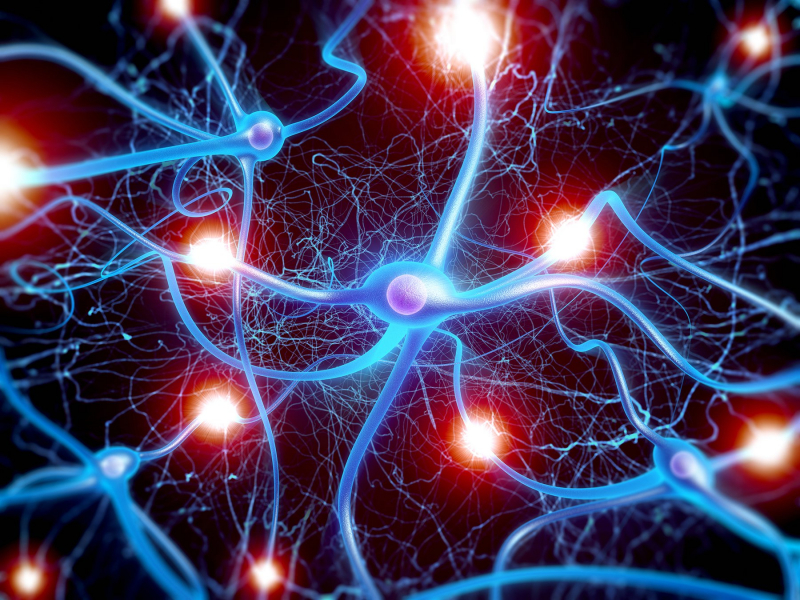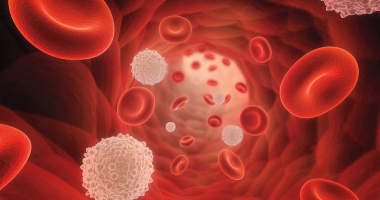Top 7 Signs and Symptoms of Vitamin B1 (Thiamine) Deficiency
Thiamin, also known as vitamin B1, is one of the eight essential B vitamins that have many important functions in the body. Thiamin is used by most cells and ... read more...is responsible for converting food into energy. And when the body lacks thiamin, it will lead to many health problems, weakening the nervous system. Let's with Toplist make a list of signs and symptoms of Vitamin B1 (Thiamine) deficiency!
-
Depending on the severity of the deficit, vitamin B1 insufficiency produces either gradual weariness (slight loss of energy) or rapid exhaustion (extreme exhaustion). Depending on the severity of the deficit, it might range from a modest reduction in energy to acute weariness. Because weariness is such a broad symptom with numerous different causes, it is frequently missed as a sign of thiamine shortage. Given the importance of thiamine in the conversion of food to fuel, it's not surprising that exhaustion and a lack of energy are prominent signs of thiamine deficiency. According to several research, thiamin deficiency causes fatigue in the body.
Vitamin B1 aids in the metabolism of carbs, proteins, and lipids into ATP, the molecule that transports energy to cells. As a result, vitamin B1 shortage causes metabolic abnormalities; cells are not supplied with enough energy, resulting in exhaustion and weakness.

fatigue in the body 
fatigue in the body -
Loss of appetite is a common early symptom of thiamine insufficiency. Because this vitamin is directly engaged in energy metabolism, it causes appetite loss. Thiamine, according to scientists, plays a significant function in the regulation of satiety. It aids in the management of the person's saturation center. A vitamin B1 shortage causes the body to feel full even when there is no food present. This can result in a loss of appetite.
Anorexia is frequently caused by vitamin B1 deficiency because this micronutrient is involved in the regulation of satiety in the human satiety center. This is a very dangerous condition in which the body feels full even after not eating for a long time, resulting in nutritional deficiencies and exhaustion.

Loss of appetite 
Loss of appetite -
Generalized muscle weakness is not unusual; in fact, it is fairly prevalent and determining the cause, whether due to a vitamin B1 shortage or another medical condition, can be challenging. In summary, most people experience transitory muscle weakness at some point in their lives. However, persistent muscle weakness with no apparent cause or reason may indicate thiamine deficiency. Patients with thiamine deficiency frequently experience muscular weakness.
These impairments occur in the sock-glove distribution and are bilateral and relatively symmetric. The impact the majority of the lower extremities, beginning with paresthesias in the toes, heat in the feet (particularly at night), calves muscle cramps, shin pain, and paresthesias. Early symptoms include weak leg muscles, difficulty rising from a crouching position, and diminished feeling in your toes. A persistent deficiency will worsen polyneuropathy, which might impair the arms.

muscle weakness 
muscle weakness -
Heart rate is a measurement of how many times your heart beats per minute. It is a simple way to monitor the health of your heart and is affected by a variety of circumstances, including vitamin B1 deficiency. In fact, thiamine shortage frequently causes a slower heart rate than normal. In research with thiamine-deficient rats, there was a significant drop in heart rate. Cardiac arrhythmias caused by thiamine shortage can lead to weariness, dizziness, and an increased risk of fainting.
Thiamine participates in the metabolism of carbohydrates, lipids, amino acids, glucose, and alcohol, and it is especially crucial in the function of central and peripheral neurons, as well as heart muscle. Degeneration of the peripheral nerves, thalamus, corpus callosum, and cerebellum is caused by thiamine deficiency. Cerebral blood flow is greatly reduced, whereas vascular resistance rises. Vasodilation, tachycardia, broad pulse pressure, sweating, heated skin, and lactic acidosis are the chief consequences. Heart failure ensues, resulting in dyspnea, pulmonary edema, and peripheral edema. Vasodilation may persist, potentially resulting in shock.

Cardiac arrhythmias 
Cardiac arrhythmias -
Delirium is a serious condition that causes disorientation, decreased consciousness, and the inability to think rationally. This issue frequently arises in patients who have poor absorption or are unable to absorb Vitamin B1, resulting in reduced consciousness and lack of concentration. Thiamine insufficiency can produce Wernicke-Korsakoff syndrome, which involves two types of brain injury that are closely connected. Delirium, memory loss, confusion, and hallucinations are common symptoms.
The wernicke-Korsakoff syndrome is frequently linked to thiamine deficiency as a result of alcohol consumption and a lack of thiamine-fortified meals. Wernicke encephalopathy causes mental sluggishness or lethargy, nystagmus, sleeplessness, ophthalmoplegia, and, if untreated, coma and death. Thiamine deficiency, on the other hand, is common in elderly individuals and may lead to the development of delirium.

Delirium 
Delirium -
Damage to the nerves, often known as neuropathy, is one of the most well-known side consequences of persistent, severe thiamine deficiency (beriberi). Beriberi, also known as thiamine deficiency, is a disease caused by a vitamin B1 deficiency. It is more common in underdeveloped countries among persons who eat a diet high in white rice or processed carbs. Thiamine insufficiency neuropathy was one of the earliest deficient syndromes to be discovered in humans.
Wet beriberi and dry beriberi are the two forms of beriberi that can develop. Wet beriberi is associated with heart failure, whereas dry beriberi is not. Wet beriberi is a medical emergency that can kill you in a matter of days if not handled. Dry beriberi causes nerve injury, which can lead to muscular weakness and finally paralysis. Beriberi is a life-threatening condition if left untreated.

Nerve damage 
Nerve damage -
A thiamine deficiency might impair the optic nerve in your eyes because of the role thiamine plays in maintaining healthy nerves. This disorder is caused by swelling of the eye's nerves, which eventually causes Blurry vision, impaired vision, and blindness. Optic nerve injury, if left untreated, can lead to visual loss.
Supplementation to address thiamine deficiency has been proven to dramatically enhance vision in these cases in certain limited investigations. Researchers discovered that a thiamine compound was beneficial in reducing alcohol-induced visual nerve damage in animals. Human studies, on the other hand, are "case reports" which means they focused on a single person. Furthermore, the findings of animal studies do not necessarily translate to human health.

Blurry vision 
Blurry vision




























